Having gone to the recent launch of Goldstar Black Roast, a special edition beer, I decided I needed an explanation from the horse’s mouth, and invited myself to visit Tempo in Netanya. I made my way North to visit our largest brewery.
There was no parking on the brewery grounds for guests, not even for my tiny car, so I parked at the nearby IKEA. I think it was a devilish plot to get me close to IKEA, which I avoid like the plague. I thought I would come out in a rash because I am allergic to that place, but I survived, and I did feel I needed a beer.
On arrival at Tempo, I was directed to Tempo’s pub, by a kind gentleman who escorted me there in case I should wander or get lost.
Part of the reason for the visit was to meet the brewmaster, who is a woman. In fact, both of our two large breweries in Israel are “manned” by women. Marina Zeltser is the brewer at Tempo Brewery and Anat Meir is the brewer at Carlsberg IBBL in Ashkelon. This is nice, because beerage tends to be an ultra-macho industry.
I very soon realized the difference from winery visits and brewery visits. I was only recently at Tempo’s Barkan-Segal Winery for a tasting. The difference was stark. The brewery and winery are the same company, but they are different worlds, not just in category, but also in preparation, professionalism and execution. It made me realize that we in the wine trade are relatively spoiled... and maybe the beer industry could learn something from their wine cousins too. It is true that beer does not have the pretentiousness of the wine industry, and they are probably less exposed to receiving customers and journalists.
I opened by telling everybody rather proudly that I began my way in the drinks world by working for a brewery. When I said the name Bass Charrington, they looked at me totally blankly, which made me feel very ancient. Of course, Brits will remember, this was the largest brewery in Great Britain and the largest pub owner, before the big brewery carve up.
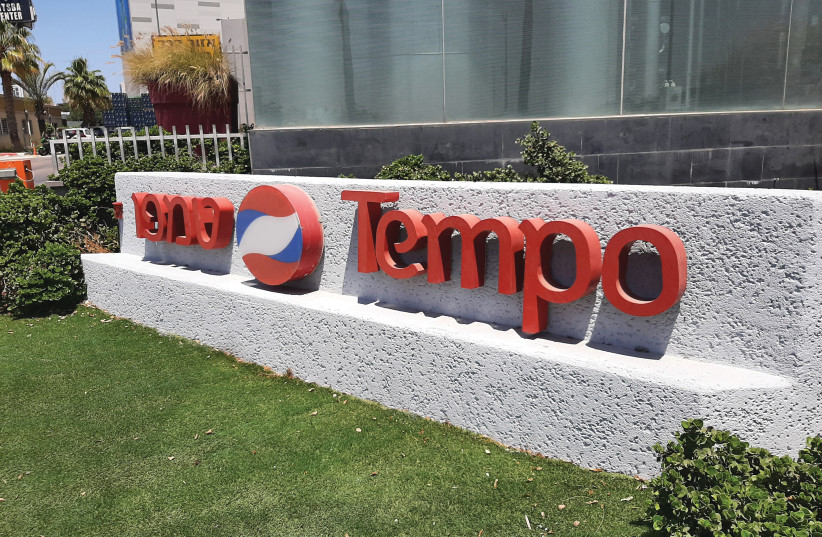
These were historic companies. Bass Brewery was founded in 1777 in Burton-on-Trent, and Charrington was a brewery founded in 1766 at Mile End in London. The Bass triangle remains the world’s oldest registered trademark. When the retail and production companies were split, the names virtually disappeared. All that remains is the iconic Bass Ale, now owned by AB In Bev, the world’s largest beer company, which is now made at Marston’s Brewery.
At least it is still made in Burton. We should be thankful for small mercies. I was weaned on Draught Bass, Charrington IPA and Worthington White Shield, but I was unable to share my experience, because the names meant zilch to the current generation. Still, Bass Ale is preserved for posterity in the famous painting by Manet of “A Bar at the Folies Bergère,” and it will remain there forever, whether the new experts have heard of it or not.
BACK TO Tempo.
This is a very impressive total beverage company, which represents global giants such as Pernod Ricard, Heineken, Pepsi Cola and Nestle. They have a finger in every pie, but have grown in stages. Tempo was originally a soft-drink company founded by Moshe Bornstein in 1953. In 1985 they entered the beer industry by purchasing the National Brewery in Netanya.
In 1992, Tempo became a franchisee for Pepsi Cola and exclusive distributor of Heineken, and in 2005 Heineken bought a 40% stake in Tempo. Also in 2005, Tempo entered the wine market by taking a share in Barkan Winery, which they now own outright. These days, Barkan is the largest winery in Israel.
In 2011, Tempo became a licensee for Pernod Ricard, the second largest spirit company in the world.
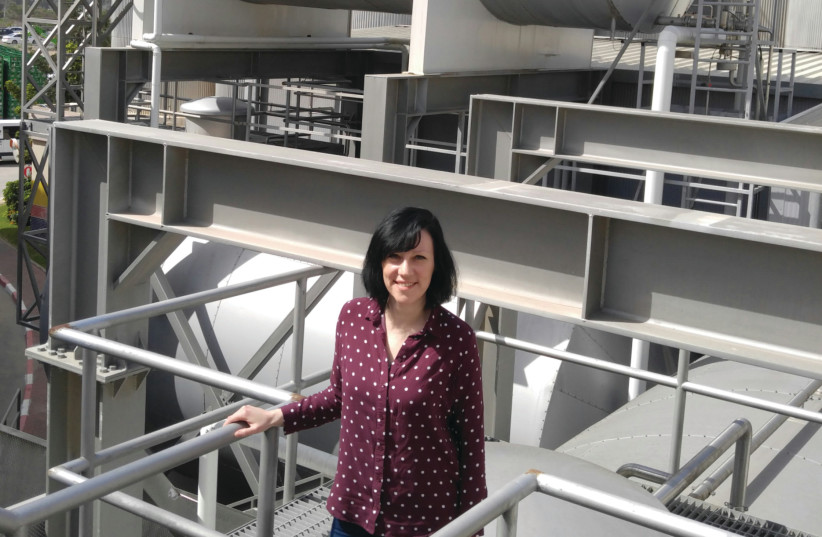
This means that Tempo Beverages is producing, distributing or marketing the following brands: Chivas Regal, Absolut and Jameson spirits; Heineken, Goldstar and Maccabee beers; Barkan and Segal wines; Pepsi Cola and 7Up soft drinks; Tempo sodas and mixers; and San Pellegrino and Perrier mineral waters. Of course, this is just skimming off the crème de la crème; there are hundreds of important brands in their very impressive portfolio.
With regard to beer, the first brewery in modern times was founded by James Rothschild (son of Baron Edmond de Rothschild) and Gustav Dreyfus in 1934. It was known as Palestine Breweries, and its first brand was Nesher (Hebrew for “eagle”). After the founding of the State of Israel, it was referred to as the Nesher Brewery.
The brewery was directly adjacent to Rishon Lezion Wine Cellars. There was a wall between the two. Before Shabbat, the workers used to meet at the wall and barter beer bottles and kiddush wine. The folklore tells us that the brewmaster and winemaker used to meet to put the world to rights after a long day, or let’s put it this way, they were never the worse for wear before breakfast.
The National Brewery of Netanya, founded in 1952, eventually merged with the Nesher Brewery and the Galilee Brewery in the 1970s. When Tempo bought the National Brewery to become Tempo Beer Industries, they became the largest brewery in Israel, a status they still hold today.
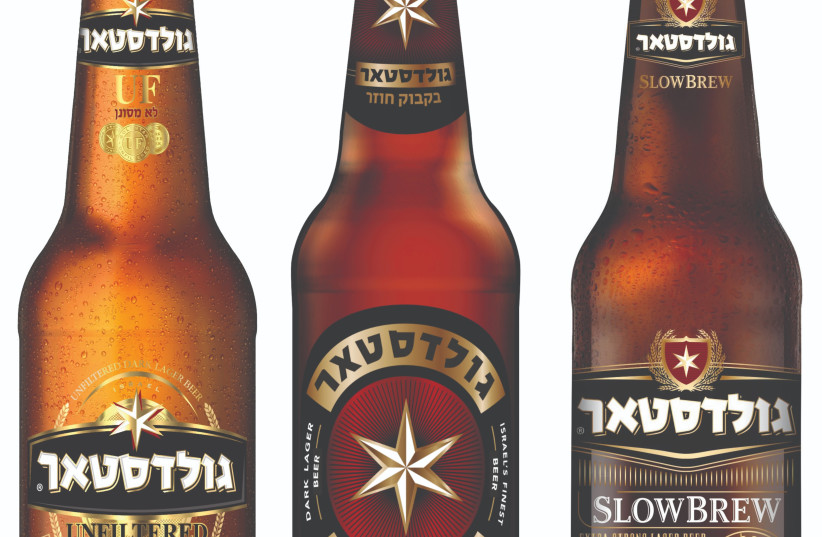
"Give that man a Goldstar!"
Advertisement
This leads me back to Goldstar.
The first Goldstar was produced in 1950. British soldiers and diplomats, missing beer from home, were the main drinkers. A popular advertising slogan of the time was: “Give that man a Goldstar!” Even Paul Newman was in one advertisement.
When the British left, the main market for beer declined and the brewery closed in 1960. All that remained by the time I worked for Carmel at Rishon Lezion, was an eagle engraved in the stone step at the entrance to the accounts department, previously the brewery office. Knowing how the Rishon Lezion Winery was trashed, I hope and pray this step is still intact. However, with the lack of a sense of history of all the main actors in this tragedy, I have my doubts.
MARINA ZELTSER made aliyah from Russia with her family in 1990 as a seven-year-old. She studied food engineering and technology and worked for Gan Shmuel, first becoming involved with soft drinks and fruit juices. She joined Tempo, and was responsible for quality control in 2010, and at every possible stage stepped closer to the brewery, where she looked, listened and gathered information like a sponge.
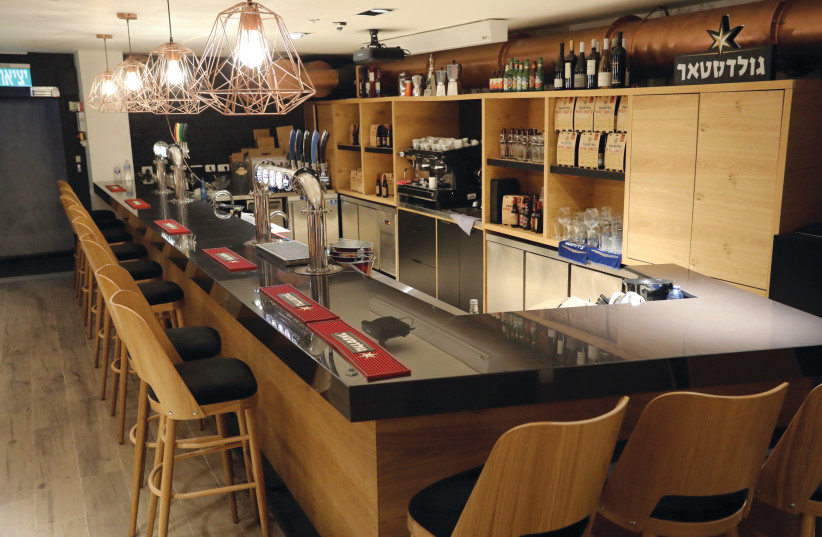
As she became involved, Tempo completed the new brewery, following which they were permitted to produce Heineken in Israel. She became a brewery technologist, having learned from the previous brewmasters, one of whom retired, and the second passed away suddenly. In 2015-2016, she studied at the Institute of Brewing and Distilling in London, and received her diploma.
She is quiet, quite shy and not an obvious beer-boozer. She says she loves to taste the beers she makes in the different places where customers enjoy them, in order to complete her own enjoyment of making the beer. She looks forward to the tastings of foreign beers, which they match against their own, and is passionate about beer, even if in an understated way.
Despite the growth of the local market and the introduction of global brands, Goldstar has maintained its status as the leading beer brand in Israel. It is still the default brand for many Israelis. It is consistently the number one in Israel, selling more than Maccabee, a pilsener, and the global immigrants, Heineken, Carlsberg, Tuborg and Corona.
THE GOLDSTAR beers were laid out before me. The regular Goldstar is 4.9% alcohol. It is a dark, amber-colored lager, sometimes associated with the Munich style. It has a beery nose of caramel, a touch of sweetness, and just the right amount of flavor to make it interesting, but with the refreshing benefits of a cold lager to ensure it slakes thirst.
The Goldstar Unfiltered was a little more yeasty in aroma and with more body. As it was unfiltered, it was not totally bright. The Black Roast, made from roasted malt (imported from Europe), was 4.7% alcohol. It was darker, almost black, but with a reddish tint. This was smoky, with notes of coffee, chocolate and roasted malt. It had a slight bitterness on the finish.
The Slow Brew was 10% alcohol. This was served in a whisky thistle glass. To me, this was like a strong malt beer with sweet, honeyed flavors. Ido Mund is the marketing operations manager, whatever that means. He is beer knowledgeable and looks like it too. I suppose he is the equivalent of the professional wine guy at a winery, usually involved with training, product knowledge and supporting the marketers with their expertise.
He told me the Slow Brew can be aged. He also had food matching recommendations. The Unfiltered would be perfect to accompany a meat-based barbecue. The Black Roast goes with chocolate cake, while the Slow Brew is good with sharp or blue cheeses. Obviously, if you find the one you like, you can drink it with everything!
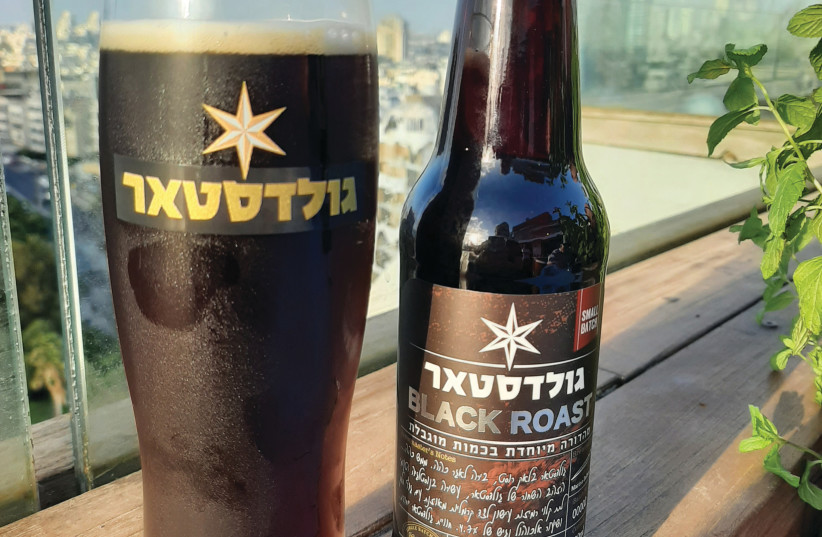
Of course Tempo markets a whole range of beers. The Paulaner Wheat Beer (or Weiss Beer) and Murphy’s Stout will be fairly well known. During my visit, I had my first taste of the Lagunitas IPA, which I loved. It was my favorite beer of the day. It was full of hoppy flavor with a sweet bitterness contrast and great, refreshing Co2 bite as it went down.
However, Goldstar remains an Israeli institution. The quality is good, the taste is reasonably original, some of the marketing is brilliant, and these new limited-edition brews add luster to the brand. Here’s to Goldstar, after 72 years, still going strong!
The writer is a wine industry insider turned wine writer, who has advanced Israeli wines for 35 years. He is referred to as the English voice of Israeli wine. www.adammontefiore.com
